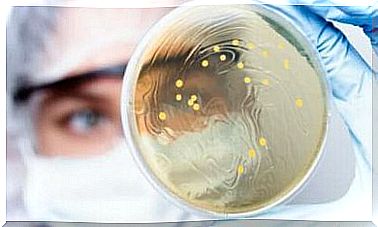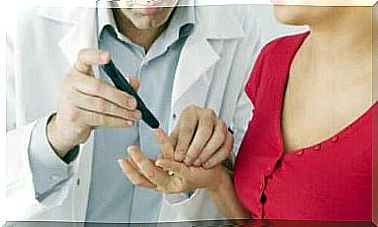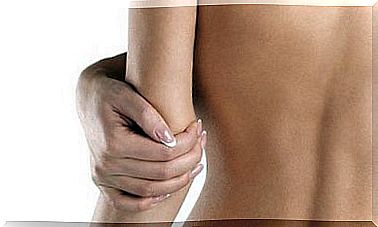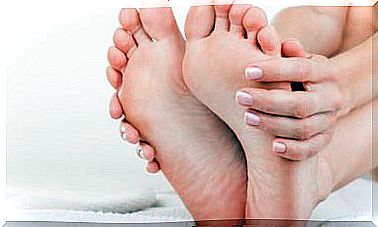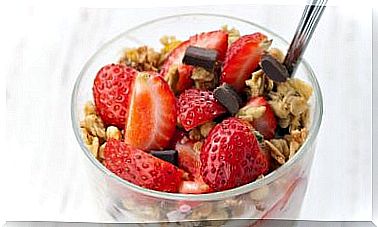Inflamed Liver? Symptoms And Proper Diet
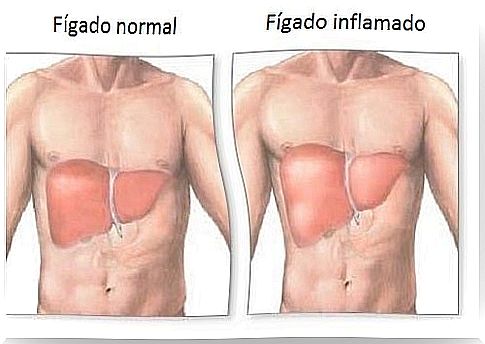
An inflamed liver is the result of a reaction that occurs when its cells are attacked by disease-causing substances or microbes. As it is a vital organ that performs several fundamental functions for health, we must be very careful to identify potential inflammation and treat it as soon as possible.
These are the main symptoms associated with an inflamed liver, so if you are experiencing any of them, see a doctor for a diagnosis and, if appropriate, start treatment to fight the inflammation.
1. Jaundice
This condition occurs when the skin and whites of the eyes turn yellowish due to the accumulation of bilirubin (a bile pigment) in the blood. The inflamed liver prevents it from eliminating this substance normally, so its accumulation is indicative of the disease.
Jaundice can also cause itchiness all over the body, and in extremely severe cases, the loss of some brain functions.
2. Abdominal pain
To recognize an inflammation in the liver, the pain must be felt in the upper right part of the abdomen. Pain and discomfort may or may not be accompanied by swelling in the area.
Patients often experience a persistent throbbing pain or sharp, severe pain. In both cases, they are temporarily relieved with the help of medication, but they return when the effect wears off.

3. Change in urine and feces
Urine color changes to a darker and more intense yellow due to accumulation of bilirubin that the liver is not able to eliminate.
Inflammation in the liver can negatively influence the digestive process, causing constipation, symptoms of irritable bowel syndrome, or changes in the character of the stool, which may become lighter and contain a little blood.
4. Nausea
Due to changes in metabolism, digestion, and the liver’s ability to eliminate toxins, inflammation in the liver can cause persistent nausea and nausea.
There may even be constant, unexplained attacks of vomiting, a strong indicator of liver disease, if not accompanied by stomach or intestinal tract problems.
5. Liquid retention
Inflammation in the liver can also cause fluid retention in the legs, ankles and feet. This occurs because this condition, in some cases, is accompanied by circulatory problems, which cause the fluid to accumulate and not be eliminated correctly.
The leg and foot region is most affected simply due to gravity, but some patients may experience fluid retention in the abdomen as well.
A proper diet is essential to treat inflammation and keep the liver healthy. Follow these nutrition tips to prevent disease in this organ that is so important to our body.
- Avoid alcohol consumption, as it can damage liver cells, causing swelling and scarring that can progress to cirrhosis, a disease that can be fatal.
- Maintain a balanced diet, rich in fruits, vegetables, lean proteins and whole grains, avoiding sugar, salt, white flour, fried foods and processed foods.
- Bet on cruciferous vegetables such as broccoli, cauliflower, kale, turnip and cabbage, which contain a substance called sulforaphane, capable of stimulating the activity of detoxifying enzymes in the liver.
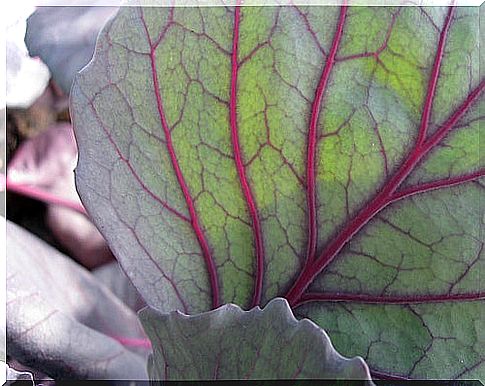
- Increase your intake of nuts and Brazil nuts. They are rich in selenium, a mineral with antiviral properties used by the liver to detoxify the bloodstream.
- Consume more garlic, as this food is rich in sulfur, used by the liver in the process of eliminating toxins. It also contains selenium and allicin, important compounds for the proper functioning of this organ.
- Add beets to your everyday salad, as it is rich in flavonoids, which can contribute to the improvement of liver functions.
- Eat more avocado, as this fruit helps the body produce an antioxidant known as glutathione, which the liver uses to filter out waste and harmful substances.
- Increase your lemon consumption. In addition to being rich in vitamin C, it is famous for aiding in the digestive process and the elimination of toxins.
- Use more saffron to spice up your meals. Also known as turmeric, this spice helps the body to digest fats and stimulates bile production.
- Lastly, make green tea part of your diet. It is rich in catechins, a powerful antioxidant capable of improving liver function.
